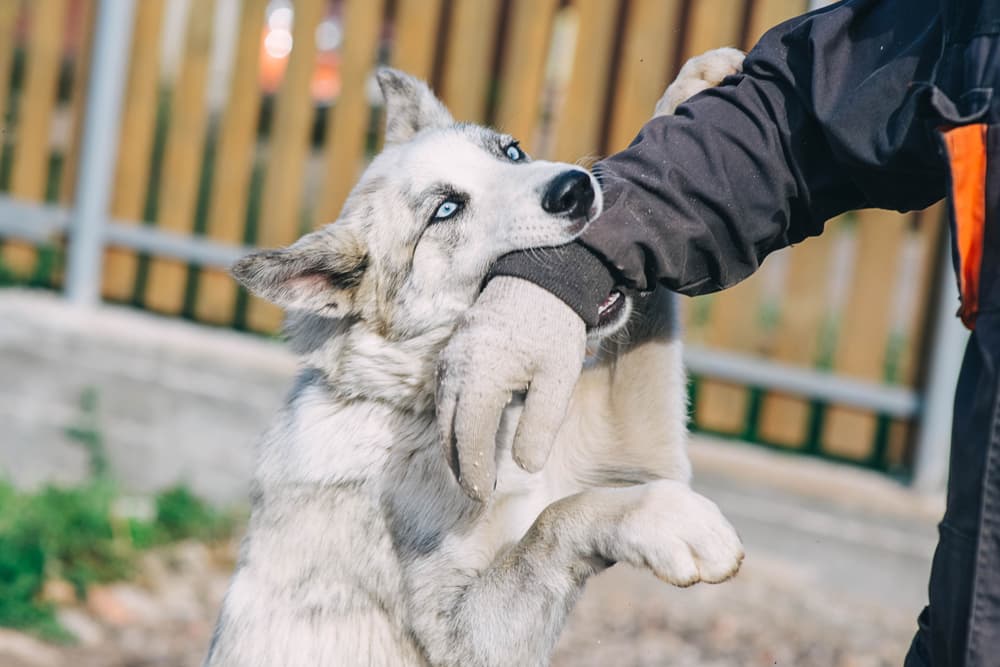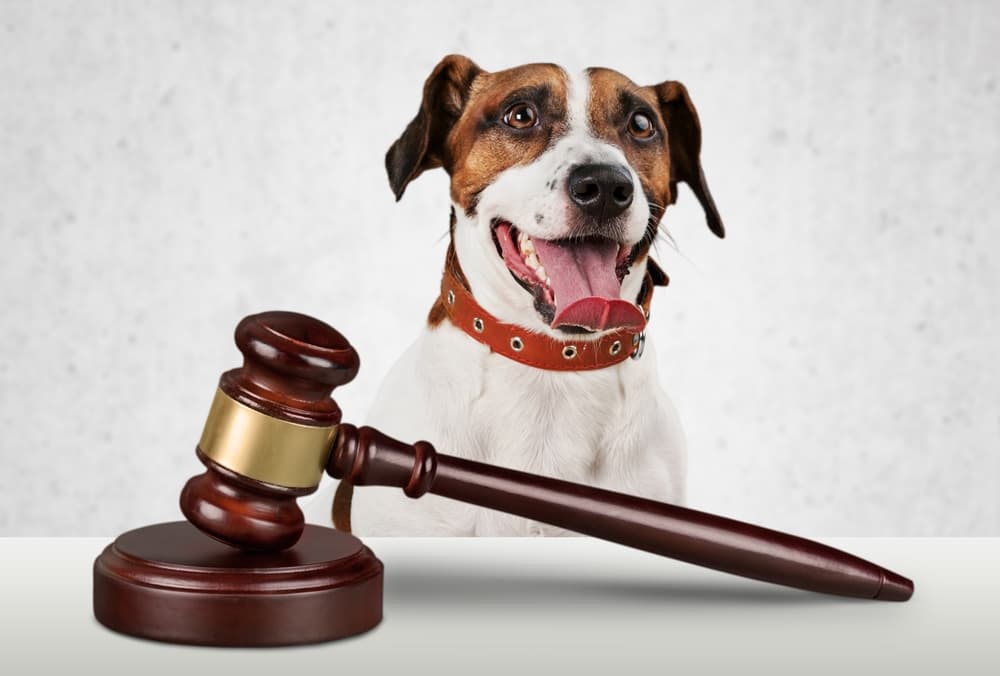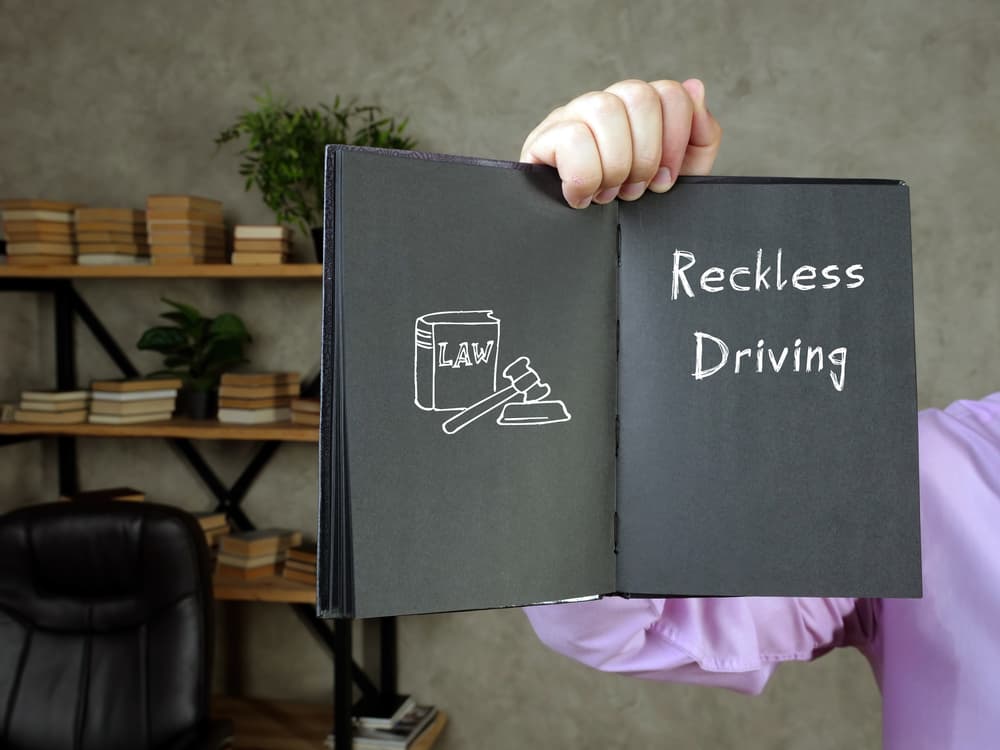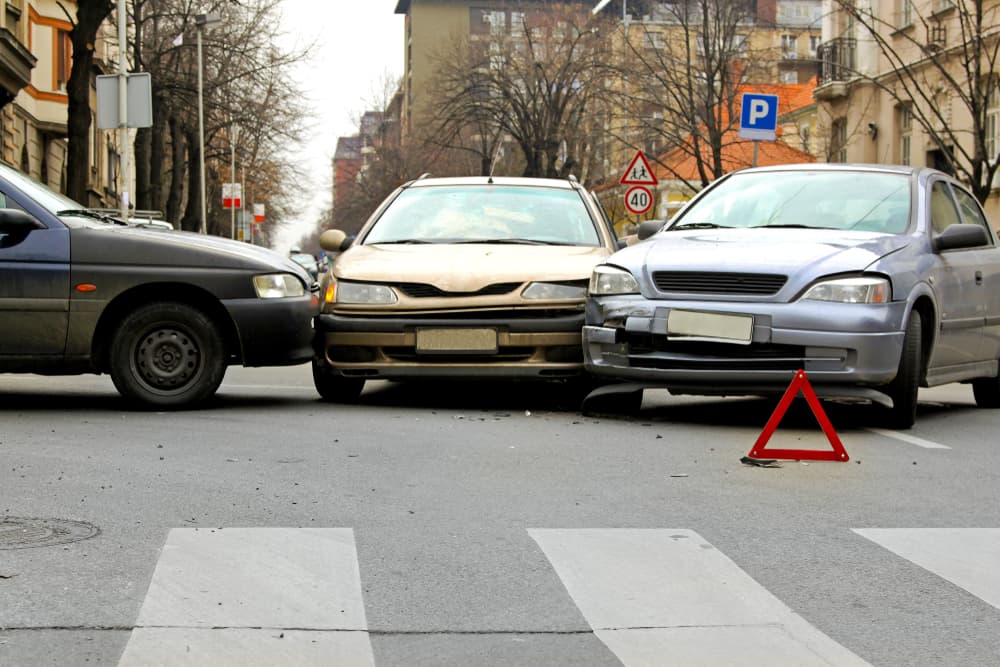Dog ownership is a privilege that comes with great responsibility. While most dogs are loving and well-behaved companions, some pose risks to others. Dangerous dog laws aim to address these risks, protecting communities while holding negligent owners accountable.
If a dog attack injures you, the law protects you and offers a way to pursue fair compensation. A dog bite lawyer can assist with your case, representing your best interests and fighting for your right to justice and financial recovery.
What is a Dangerous Dog?
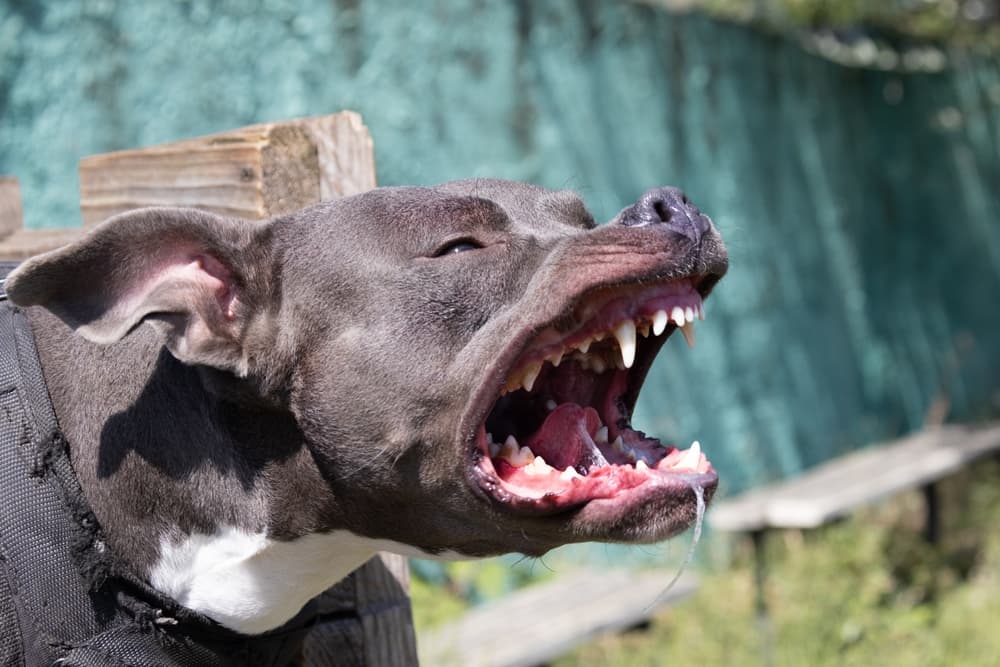
A "dangerous dog" is generally defined as one that poses a risk to public safety due to aggressive behavior. The specific legal definition varies by jurisdiction but typically includes:
- Dogs that have attacked or bitten a person without provocation.
- Dogs with a history of aggressive behavior, including attacks on other animals.
- Based on documented incidents, dogs are deemed dangerous by animal control or law enforcement.
Some jurisdictions distinguish between "dangerous" and "potentially dangerous" dogs. A potentially dangerous dog may not have caused severe harm but has exhibited threatening behavior, such as unprovoked chasing or lunging at people.
Familiarizing yourself with your state’s definition of a dangerous dog is important. This can clarify how your state handles dangerous dogs and what is necessary to prove if a dog harms you in an attack.
Breeds Commonly Associated with Dangerous Dogs
While any dog can become dangerous under certain circumstances, specific breeds are frequently associated with aggressive behavior due to their physical strength and temperament. Breeds often linked to dangerous dog classifications include:
- Pitbull Terriers
- Rottweilers
- German Shepherds
- Doberman Pinschers
- Alaskan Malamutes
- Chow Chows
- Huskies
- Boxers
It’s important to note that breed-specific legislation remains controversial. Critics argue that it unfairly stigmatizes certain breeds rather than addressing the root causes of aggression, such as poor training, neglect, or abuse.
While these breeds are commonly associated with aggressive behaviors, it does not mean other breeds cannot cause a person harm. If you suffered an injury in a dog attack, it does not matter the breed of the dog – you may have the right to pursue compensation.
Why Do Dog Attacks Happen?
Dog attacks typically occur due to the dog’s environment, behavior, and the owner's actions or inactions. Common reasons include:
- Neglect or abuse: Dogs that experience neglect or physical abuse are more likely to exhibit aggressive behavior.
- Lack of socialization: Dogs that lack proper training may react aggressively in unfamiliar situations or around strangers.
- Poor training: Owners who fail to teach their dogs proper behavior or encourage aggression can inadvertently create dangerous situations.
- Fear or pain: In some situations, dogs may attack if they feel threatened, scared, or in pain.
- Protective instincts: Dogs may become aggressive if they perceive a threat to their owner, territory, or offspring.
If a dog injures you, it’s helpful to understand what may have caused it. However, some dog attacks happen for no apparent reason. Regardless of the situation, the dog’s owner or caretaker can be found liable.
Injuries Often Resulting from Dog Bites
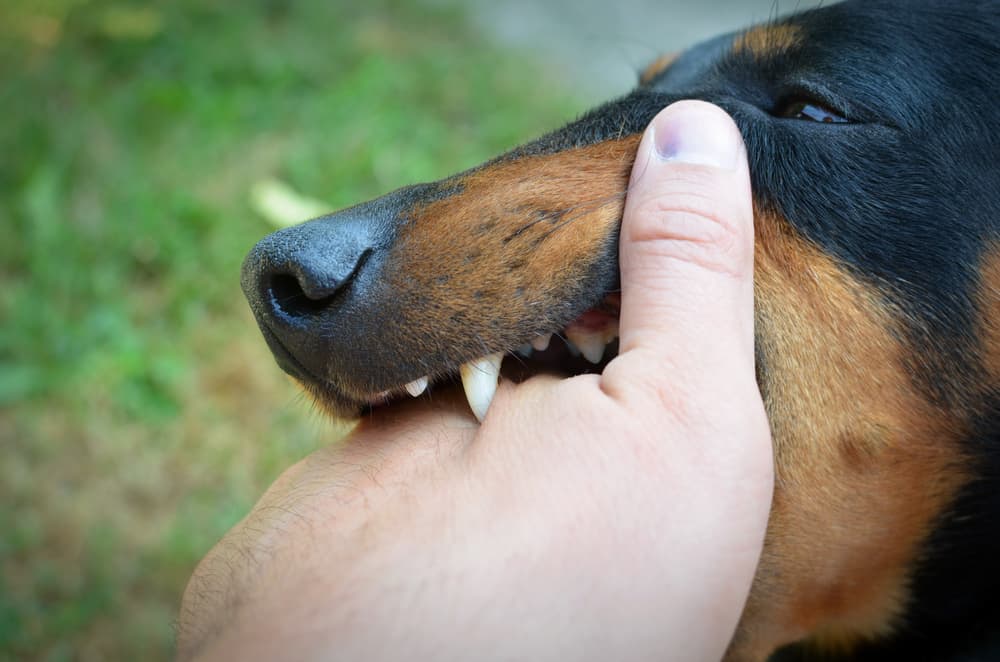
Dog bites can cause severe physical and emotional trauma. Common injuries include:
- Puncture wounds: When a dog bites you, the dog’s teeth may penetrate the skin, causing deep puncture wounds.
- Lacerations: A dog attack can result in lacerations, either from the dog itself or the situation (like falling and landing on a sharp object). Lacerations may require stitches or surgical repair.
- Fractures: Dog attacks can result in broken bones, particularly if you experience a substantial bite or fall while trying to escape the animal.
- Scarring and disfigurement: For more serious injury, permanent physical damage can occur, particularly to the face, hands, and legs.
Dog bite injuries often require immediate medical attention. Failing to treat injuries, including puncture wounds and lacerations, can result in consequences. Dog bites can transmit bacteria, such as Pasteruella, leading to serious infections.
In addition to physical injury, a dog attack can cause emotional harm. Victims may experience anxiety and post-traumatic stress disorder (PTSD) and develop a long-term fear of dogs.
Dangerous Dog Laws
Laws concerning dangerous dogs vary widely across the country, reflecting the diverse approaches jurisdictions take to address public safety. Common legal provisions include:
- Registration and licensing: Owners of dangerous dogs may be required to register them with local authorities and obtain a special license.
- Muzzling and restrain requirements: Dangerous dogs must often be muzzled or kept on a short leash in public.
- Confinement: Owners must secure dangerous dogs in fenced areas or enclosures to prevent escape.
- Mandatory liability insurance: Some jurisdictions require owners to carry insurance to cover potential damages caused by their dogs.
Additionally, certain states or municipalities ban or impose restrictions on specific breeds.
Other Dog Laws
If a dog attacks you, consider your jurisdiction’s dangerous dog laws. However, other dog-related laws, including the following, can also play a role in your dog bite case.
Leash Laws
Many local jurisdictions have leash laws requiring dogs to be leashed in public spaces, even if they are not technically considered “dangerous.” Violating these laws can result in liability if a dog bite occurs because the owner failed to leash the dog.
Trespassing Exceptions
Depending on the jurisdiction, dog owners may not be liable if the injured person was trespassing on the property when the bite occurred. A person becomes a trespasser if they enter someone’s property without the owner’s or occupier’s permission.
Provocation
Provoking a dog can result in an attack. In some situations, if the injured person provoked the dog (e.g., by hitting or teasing it), the owner’s liability may be reduced or eliminated.
Reporting Requirements
Many states require people to report dog bites to animal control authorities. Owners may face fines and other penalties for failing to report an incident. Depending on the jurisdiction and circumstances, animal control may have certain protocols, like quarantining a dog after an attack.
Who is Liable for a Dog Attack?
Several parties can potentially be liable for a dog bite based on the details of the incident. Parties that can be responsible for a dog attack include:
- The dog’s owner: The most common person held liable for a dog bite is the dog's owner. Owners are typically responsible under local laws, including strict liability or negligence.
- The dog’s caretaker or handler: A person who is temporarily responsible for the dog at the time of the bite, such as a dog walker, pet sitter, or even a friend watching the dog, can be deemed at fault. If the caretaker was negligent in controlling or restraining the dog, they can share or take full liability for the bite.
- The dog owner’s landlord: Sometimes, a landlord may be responsible if they knew the tenant had a dangerous dog and failed to take reasonable steps to protect other tenants or neighbors.
Consider the situation to determine who can be liable when a dog attack occurs. Depending on the circumstances surrounding the attack, this may include the dog’s owner, a property owner, or even a third party.
Strict Liability vs. Negligence
When a dog attack occurs, liability depends on the applicable legal standard in the jurisdiction, usually involving strict liability or negligence.
Under strict liability laws, dog owners are automatically responsible for injuries caused by their dogs, regardless of whether the owner was negligent or aware of the dog’s aggressive tendencies.
Alternatively, in states without strict liability laws, victims must prove that the owner’s negligence caused the attack. This can involve showing that the owner failed to properly restrain or control the dog.
A dog bite lawyer can determine who is at fault for the attack and hold the person liable under your state’s applicable legal standard.
What is the “One Bite Rule?”
The “one bite rule” is a common rule concerning dog bites.
In states that follow the "one-bite rule," an owner may not be held liable for a dog bite unless they knew or should have known that their dog was dangerous or had a propensity to bite (e.g., after a previous incident). So, if a dog has no history of aggression and bites someone for the first time, the owner may not be held liable unless negligence is proven.
Only certain states follow the one-bite rule.
How to Protect Your Rights After a Dog Attack
It is common to feel stressed and overwhelmed after experiencing a dog attack, especially if you’re dealing with serious injuries. However, remember that what you do following a dog bite incident can impact your rights and future cases.
In the moments and days following a dog bite, you should:
- Seek medical attention: Immediate treatment can address injuries and help prevent further complications. Visit an emergency room or your doctor as soon as possible.
- Report the incident: File a report with local animal control or law enforcement.
- Preserve evidence: Keep medical records, invoices, and any correspondence related to the incident. You can use all of this to prove your expenses and losses.
Additionally, consult with a dog bite lawyer as soon as possible. A skilled attorney can review the specifics of your incident, provide guidance and support, and determine the best way to hold the responsible parties liable and seek compensation on your behalf.
Pursuing Compensation For Dog Bite Injuries
Seeking compensation after your dog attack can help alleviate some of your financial burdens. Your damages depend on the details of your case but can include:
- Medical expenses: Compensation for medical care, including emergency treatment, surgeries, and ongoing care.
- Lost income: Damages for time missed from work during your recovery.
- Pain and suffering: Damages for physical pain and emotional distress caused by the incident and your injuries.
- Property damage: Reimbursement for any personal property damaged during the attack.
Depending on the situation, you may have several options to pursue financial recovery after a dog bite, including insurance claims or lawsuits.
For dog bites, homeowners’ or renters’ insurance may apply. Many homeowners' and renters' insurance policies cover dog bite incidents, even if the bite occurs off the owner's property. Filing a claim through the owner’s insurance can provide adequate compensation.
However, if insurance coverage is insufficient or the owner is uninsured, you can sue the liable party directly for damages based on the applicable legal theory. A dog bite lawyer can determine whether you have a viable personal injury claim, file your lawsuit, and represent you throughout the case.
Pursuing compensation is important after a dog bite. Seek legal representation right away to get started on your claim. A skilled attorney can help gather evidence, negotiate with insurance companies, and ensure you receive the full compensation you deserve.
The Role of a Dog Bite Lawyer
Hiring a dog bite attorney can significantly impact the outcome of your case. An experienced lawyer can:
- Offer legal knowledge: An experienced attorney understands the nuances of dangerous dog laws and can build a strong case.
- Investigate the incident: A lawyer can gather evidence, interview witnesses, and consult professionals to strengthen your claim.
- Negotiate for a fair settlement: Attorneys can negotiate with insurance companies to ensure you receive the most favorable result.
- Litigate your case: If necessary, an attorney can represent you in court and advocate for your rights.
- Reduce your stress: Having legal representation can give you peace of mind, knowing your lawyer is handling your case from beginning to end.
Having a lawyer helps ensure your rights remain protected and you have someone advocating for your best interests. They can guide you through the legal process, handle negotiations, and fight to get you the compensation you deserve.
An Experienced Attorney Can Explain Local Dog Bite Laws and Help You Secure Financial Recovery
Dog attacks can cause devastating injuries and emotional scars, but victims have legal recourse. Understanding dangerous dog laws and pursuing compensation alongside a skilled attorney are critical steps toward financial recovery.
Hiring a personal injury lawyer ensures that you are not taken advantage of and increases the likelihood of a beneficial outcome. If you or a loved one has suffered a dog bite, you are not alone. Seek experienced legal representation to secure the justice and compensation you deserve.
